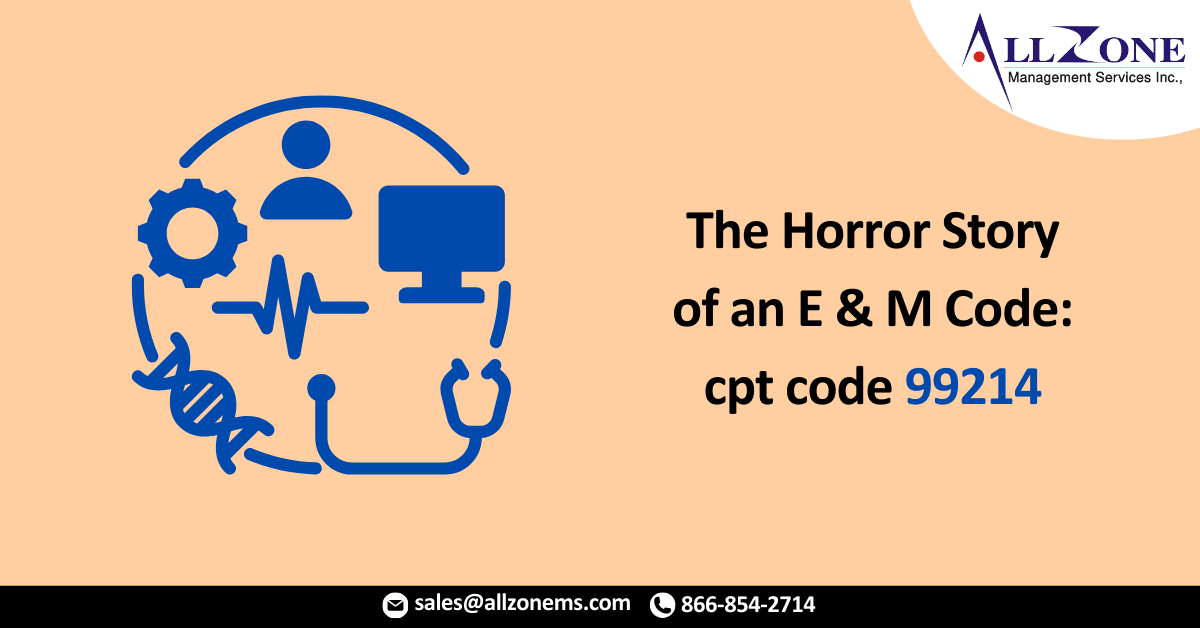CPT code 99214. Is that Jean Valjean’s number? No. It is an evaluation and management (E&M) code of moderate complexity.
Few CPT® codes cause goosebumps, a chill in the air, and a pit in your stomach besides CPT code 99214. It is an E&M code of moderate complexity.
For a low-complexity visit, the code decreases to 99213 cpt code. Even lower is a 99212, which is considered a straightforward visit. The code goes as high as a 99215, which denotes high complexity.
Generally, physicians are good at spotting the 99215s and 99212s; the lowest and highest complexities seem simple to spot. However, the middle-complexity codes are a bit subjective.
Auditors frequently find 99214s that the auditor thinks should have been 99213 cpt code . The Recovery Audit Contractors (RACs), Medicare Administrative Contractors (MACs), Targeted Probe-and-Educate auditors (TPEs), Unified Program Integrity Contractors (UPICs), and other contractors paid with our tax dollars on behalf of the Centers for Medicare & Medicaid Services (CMS).
Related Article:
|
Across a Blue Cross Blue Shield (BCBS) audit that found that an urgent care center had a 97-percent error rate. Out of 30 claims, only one claim was considered 99214; 29 claims should have been down-coded to a CPT code 99213 , according to BCBS.
Well, the urgent care center disagreed, and hired an independent auditor to review the same claims that were audited. The independent audit resulted in vastly different results. According to the independent audit, only four of the 30 claims should have been down-coded to 99213 cpt code.
One should ask how could two separate auditors audit the same documents and arrive at such disparate results? One reason is that the difference between 99213 cpt code and 99214 is subjective. However, subjectiveness was not the only reason for the disagreement.
Before 2021, facilities had the choice to follow either the 1995 guidelines or the 1997 guidelines for these CPT codes. And there is a difference between the two guidelines. Instead of choosing either the 1995 or 1997 guidelines, BCBS applied both guidelines, which falsely created more stringent criteria for cpt code 99214 .
The urgent care center had been verbose about the fact that they use the 1995 guidelines, not the 1997 guidelines. When the independent contractor audited the records, it used the 1995 guidelines only.
All in all, for an accusation of owing $180,000 it cost the urgent care center almost $100,000 to defend itself against what was obviously a faulty audit.
why in the world is there insurance for physicians for making a mistake in surgery – medical malpractice – but no insurance for False Claims Act allegations? medical malpractice allegations mean that there is a victim. But you can be accused of false claims unexpectantly, and your practice can be changed forever.
Recently, insurance company that insures doctors and facilities if they are accused of billing Medicare or Medicaid for false claims.
Unlike medical malpractice, an accusation of false claims does not yield a victim (unless you see our tax dollars as people); however, an accusation of billing a false claim can cost a doctor, facility, or hospital hundreds of thousands of dollars. Knowing that all things are relative, that is still pennies on the dollar of the penalties under the False Claims Act (FCA).
For More Information: The miserable tale of an em code

